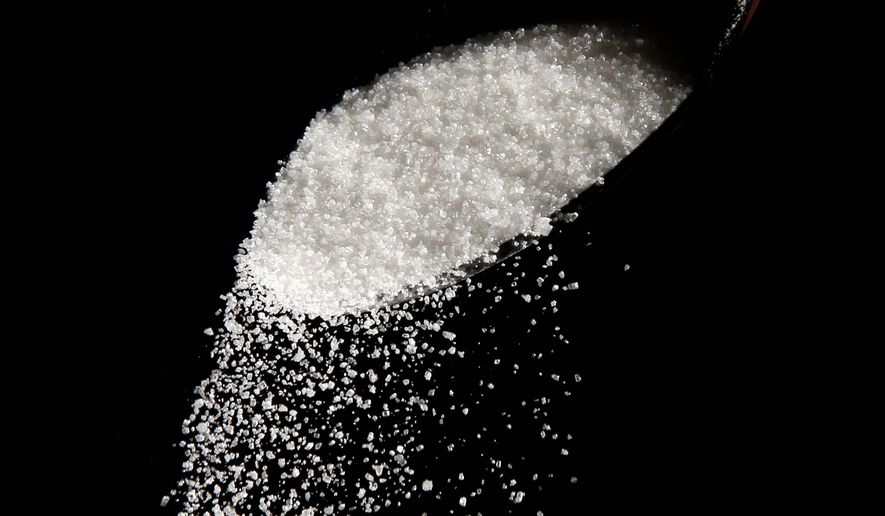OSLO, Norway — Swedish supermarkets are drooling over a sugar tax hike in neighboring Norway that promises a boom in binge border shopping trips for cheap candy and sodas.
Norway’s decision to place a heavy new tax on sugar in order to improve the national diet — while raising revenues — is setting up a classic clash between social engineering and free-market capitalism, and in even in the heart of Scandinavian social democracy, many are betting the market will prevail.
“Last year, the Swedish and Norwegian kroner were even and [Norwegian] shoppers didn’t gain as much, so in that sense this tax is a godsend for border shopping,” said Torbjorn Svartz, managing director of Swedish supermarket MaxiMat in Vaamland, a town near the Norwegian border.
Beginning Jan. 1, the Norwegian government increased the current tax on sugary foods by as much as 83 percent, raising the tax on chocolate, for example, to around $2 per pound.
Critics complained that the higher prices would only drive more Norwegian grocery shopper across the border to Sweden, which already gleans about $1.87 billion of business annually from cross-border trade, according to Menon Economics, a Norwegian consultancy.
To protest the tax increase, a Norwegian consumer group staged a stunt last month at Swedish candy megastore Supergott in Tocksfors, a popular shopping destination in southwestern Sweden because of its proximity to the Norwegian border.
“We got 12,000 new members after giving out one ton of free candy in Sweden,” said Hampus Soderstrom, head of the Harry Handel Club, an organization named after the Norwegian practice of bargain shopping for sweets, meats and alcohol known locally as “Harry” Shopping after the Norwegian slang word for being tacky or unrefined.
The minority coalition government of center-right Norwegian Prime Minister Erna Solberg, who just wrapped up a trip to the U.S. last week, agreed to increase the levy as part of a compromise with the Christian Democrats, partly to improve health habits but also to plug a budget gap. Officials said the move would fill Norway’s coffers with an additional $250 million.
“Sugar consumption is still too high in Norway, contributing to considerable problems related to diabetes and obesity,” said Olaug Bollestad, the Christian Democrat who leads the Norwegian parliament’s health committee. “The World Health Organization cites sugar taxes as one of the most effective ways of fighting diabetes and obesity, and our move is supported by the Norwegian Medical Association and the Norwegian Dentist Association.”
Norwegian officials have a goal of reducing sugar intake per person 12.5 percent by 2021. Currently, Norwegians consume around 59 pounds of sugar annually, according to the Norwegian Directorate of Health. Americans eat around 75 pounds annually, according the U.S. Department of Agriculture.
Border crossings
But tithing sweets is widely unpopular in this Scandinavian country, and with Sweden sharing a 1,010-mile border with nearly 80 separate crossing points, Norwegian sweets lovers can vote with their feet.
Industry critics argue higher sugar prices will threaten Norwegian competitiveness. The country has lost already about 12,000 direct and indirect jobs as a result of cross-border trade, according to a recent analysis by Menon Economics.
“This is a serious situation,” Gro Krigsvoll, managing director of the century-old Freia chocolate factory in Oslo, told Norwegian broadcaster NRK in November. “When taxes rise 83 percent, it will obviously affect our sales. People will shop more in Sweden or on the internet, and reduced sales will affect the number of employees at Freia.”
The Norwegian food and beverage industry has complained that the sugar tax is arbitrary on certain products, such as diet soft drinks, and that sugar consumption was already declining in Norway. The sudden fiscal change also came shortly after the industry signed a cooperation agreement with the government to work voluntarily on reducing public consumption of sugar products. The Brewery and Beverage Union protested by putting the deal on ice this November.
“Companies have reported that they were well on their way with their own goals of reducing sugar by 19 percent per sold beverage [by] 2020,” said Union Director Petter Nome. “This proposal is poorly planned, affects Norwegian jobs and competitiveness and will most likely have negative health effects because border trade and private imports from Sweden can be expected to increase significantly.”
In addition, critics warn, the tax may not have the intended health effects because people can drive over to Sweden to satisfy their cravings. A recent survey among Harry Handel’s 42,000 members showed 85 percent planned to do exactly that.
“The politicians live in a fantasy world,” Mr. Soderstrom said.
Norway is not alone in its quest to curb sugar consumption. Countries such as Mexico and France already have some form of a sugar tax, as do a handful of state and local governments in the U.S. Britain is slated to impose one this April. The overall drive reflects fears over rising health costs from an increasingly obese population. The World Health Organization supports taxing sugary drinks in order to increase retail prices by at least 20 percent and discourage consumption.
Meanwhile, the number of border shopping trips in Swedish shops has increased by 45 percent since 2008, according to Menon Economics, because the Norwegian krone is stronger than Sweden’s currency and Swedish shops offer a broader selection of goods as a member of the European Union.
Norway could lose a further $125 million this year as a result of the sugar tax, estimated Mr. Svartz. His store, MaxiMat, is only a one-hour drive from Oslo and a popular weekend destination given that Norwegian shops are closed on Sundays.
Mr. Svartz expected sales to really surge around mid-February when Norwegians traditionally bulk up on groceries and liquor ahead of the school winter break.
“We are installing bigger soda and candy sections,” he said.




Please read our comment policy before commenting.